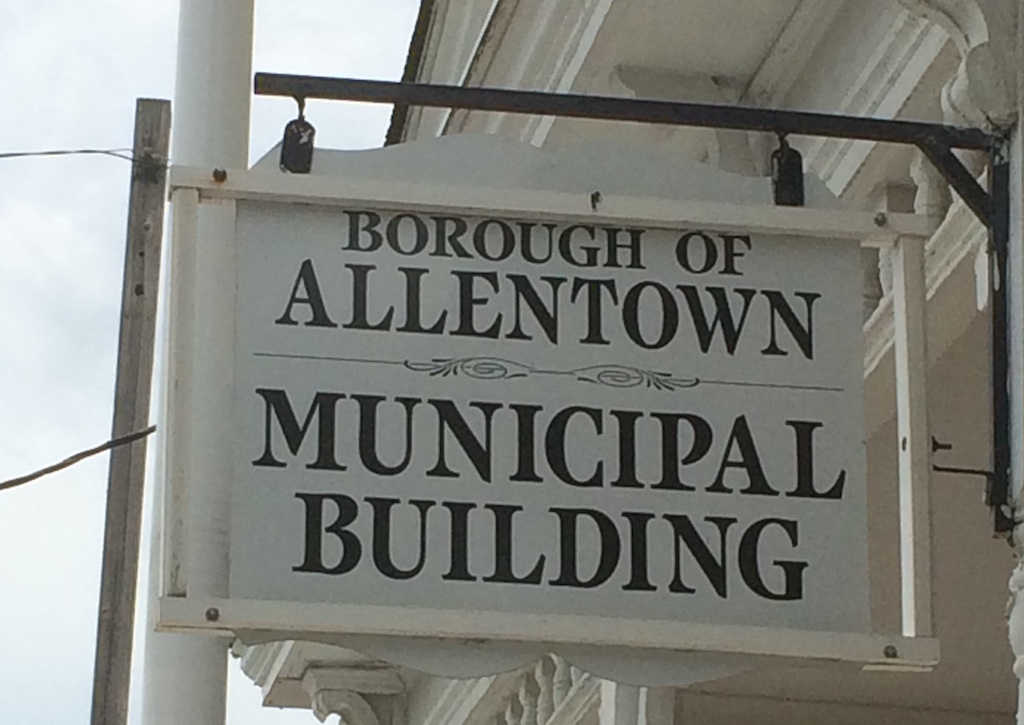By Mark Rosman
Staff Writer
ALLENTOWN – Borough officials have not yet approved a request from Verizon Wireless, which is seeking permission for its employees to enter Allentown’s right of way to determine if new technology is needed in order to provide more reliable mobile phone service.
During the Feb. 28 meeting of the Borough Council, officials and members of the public heard from Larry Morgan of Tilson Technology Management, representing Verizon Wireless.
Morgan asked for municipal consent that would allow Verizon Wireless employees to enter the right of way and to survey the borough in order to determine if small network nodes should be placed on existing wooden utility poles. A node is a small metal box-like antenna.
He said mobile phone users are using their phones for much more than voice communication and many of those other uses involve data. Infrastructure such as cellular communications towers and antennas provides coverage, but data usage “soaks up the signal,” Morgan said.
Morgan described the nodes as technology that enhances signal strength where people congregate and use mobile phones.
“It is an asset to the community to have a strong, steady signal,” he said.
Morgan suggested that a survey of the community by Verizon Wireless could determine that between one and five nodes might provide the signal enhancement the company wants to provide in the borough.
He said that after determining what utility poles, if any, should be equipped with a node, Verizon Wireless would provide a site plan, subject to municipal review, for each pole. He said Verizon Wireless is approaching every municipality to discuss this issue and to seek municipal consent for a survey regarding the need for nodes.
Morgan’s request for municipal consent to enter the right of way drew questions and comments from Mayor Greg Westfall and council members.
Westfall asked if Allentown would receive any income by allowing Verizon Wireless to install the nodes. Morgan said a statute prohibits a municipality from charging the company a fee to place its equipment.
Councilman Robert Strovinsky said the nodes are “obnoxious looking” and he said granting consent to Verizon Wireless would open the door to other carriers who might want to place their equipment throughout the borough.
Strovinsky said he does not want to see that type of device on every utility pole in Allentown.
“I agree (the technology) is not pretty,” Morgan told Strovinsky, but he suggested that reliable service is important. He said Verizon Wireless is “sensitive to aesthetics” and would work with local officials if it determined that nodes are something it wants to place in the borough.
Morgan explained that the nodes work off of and need nearby cell towers to function.
“I have heard that phone service would be enhanced, but what’s in it for Allentown?” council President Wil Borkowski asked. “My cell phone is working fine without the nodes.”
Morgan said a better, stronger, consistent signal would be a benefit to Allentown.
“I don’t see people having trouble with their data usage,” Strovinsky said.
Morgan said if Verizon Wireless determines small network nodes are not needed in Allentown, then none will be proposed. He said his request for municipal consent was to permit the company’s employees to enter borough property to collect information.
The discussion ended and Morgan thanked the members of the governing body for their time. The council members did not make a decision that evening in response to Morgan’s request for consent to permit Verizon Wireless to enter borough property.
The council’s next meeting is scheduled for March 14.

